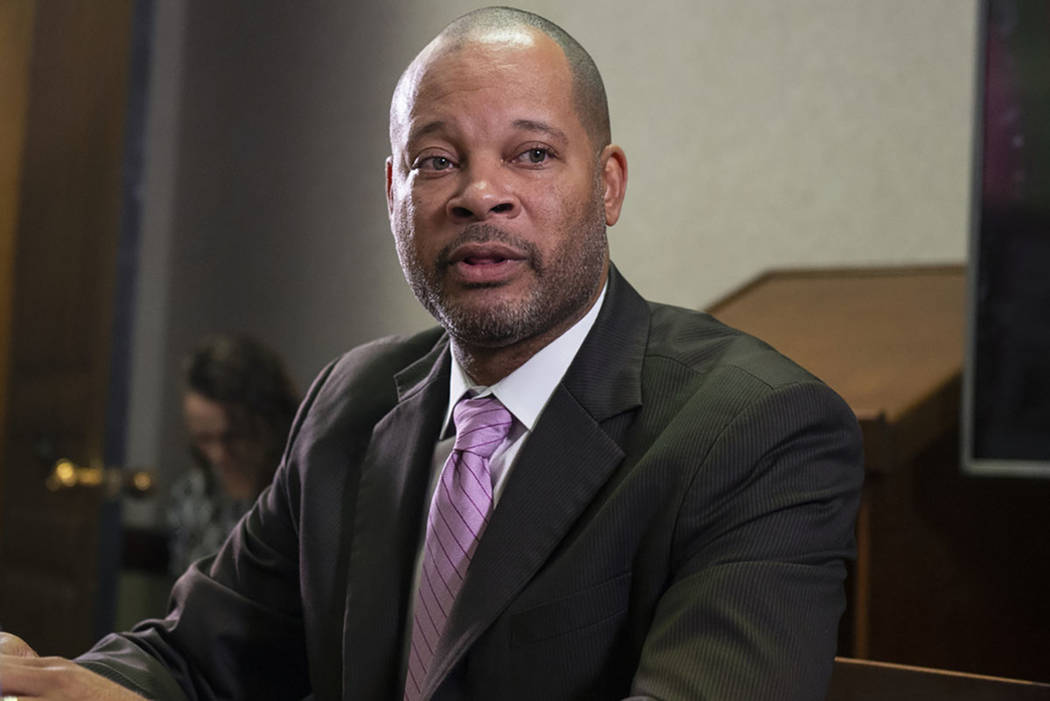Nevada Attorney General’s office repeatedly delayed records requests
Nevada’s top law enforcement office is repeatedly delaying the production of documents requested by the Review-Journal despite the state law that prohibits unreasonable delays.
Three times since Attorney General Aaron Ford took office in January, his staff has set a date several months out to provide the records. Then on or after that date, they sent a letter delaying the records release for additional months.
The Nevada Public Records Act requires agencies to produce records without unreasonable delays. And in October, an amended bill took effect, strengthening the act and requiring agencies to provide detailed reasons for delays in writing.
Benjamin Lipman, Review-Journal vice president of legal affairs and general counsel, wrote Ford’s legal researcher Shannon Johnson Monday questioning the unexplained delays and noting that repeatedly putting off the production of records could violate the act.
“Despite the vast amount of time the OAG has to prepare the documents … the OAG failed to provide even one responsive document,” Lipman wrote. “We must demand that the documents, already long overdue in violation of the NPRA, be produced beginning immediately.
Review-Journal Executive Editor Glenn Cook questioned why the attorney general is not being forthcoming.
“When you see these kinds of extreme delays in processing routine records requests, it compels us to ask more questions,” Review-Journal Executive Editor Glenn Cook said Thursday. “Are they trying to hide something? Are they trying to protect someone?”
The attorney general’s office declined to do an interview on the delays, but in an email, spokeswoman Monica Moazez said the requests require the agency to review hundreds of thousands of records.
“This office values transparency and endeavors to diligently respond to every records request in a timely and accurate manner, while balancing privacy laws, our ethical obligations to attorney-client privilege, and law enforcement confidentiality,” she wrote. “After Attorney General Ford took office, the administration made improvements to our existing system, and we are currently making technological upgrades to expedite the process.”
Repeated requests delayed
Between May and August, the Review-Journal requested records about the office’s work on an investigation at the University of Nevada-Las Vegas dental school, the office’s investigation into a failed computer modernization at the Department of Motor Vehicles and the office’s bidding for a law firm to represent the state in litigation against opiate manufacturers.
Each time, AG staff responded that they expected to produce the records in about three months. Then the office extended the time frame for an additional three months or more. In one case, the extension notification came on the day the request was due, but twice it came the day after the office promised to provide the records.
The opiate litigation request was filed by one of the news organization’s editorial board columnists, who works separately from the news division.
The open records law aims to increase cooperation between government employees and those who request records, but it also provides civil fines for willfully withholding documents.
“The governmental entity shall provide to the person, in writing, an explanation of the reason the public book or record is not available and a date and time after which the governmental entity reasonably believes the public book or record will be available for the person to inspect or copy or after which a copy of the public book or record will be available to the person,” NRS 239.010 details.
The agency has not provided any detailed reasons for the delays just saying the “office will require additional time to complete this search and review for potentially responsive records,” the apparent form letter said.
Cook praised the new law but said agencies must work harder to implement its provisions.
“The Nevada Public Records Act was made much stronger this year by the Nevada Legislature. A broad, bipartisan coalition including the state’s top media organizations supported the legislation. It won unanimous passage, and the new law took effect last month,” Cook said. “But responses like these from the attorney general’s office are a clear signal that government agencies have a long way to go to meet the old, weaker standards of the law, to say nothing of the new ones.”
Richard Karpel, executive director of the Nevada Press Association, questioned the delays.
“The AG’s staff includes many competent and highly professional employees who are dedicated to serving the public and upholding the law,” he said. “It does make one wonder why it would take them over six months to fulfill what appears to be pretty routine record requests, especially when they involve matters of public concern.”
Contact Arthur Kane at akane@reviewjournal.com. Follow @ArthurMKane on Twitter. Kane is a member of the Review-Journal’s investigative team, focusing on reporting that holds leaders and agencies accountable and exposes wrongdoing. Support our journalism.






























